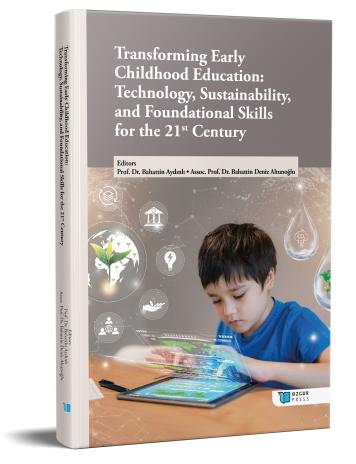
Biology Education in Preschool Period
Chapter from the book:
Aydınlı,
B.
&
Altunoğlu,
B.
D.
(eds.)
2024.
Transforming Early Childhood Education: Technology, Sustainability, and Foundational Skills for the 21st Century .
Synopsis
This study addresses the importance of biology education in early childhood and explores effective teaching methods. Biology education plays a crucial role in developing children's understanding of the environment, connecting with nature, and enhancing scientific thinking skills. The fundamental teaching principles aim to help children comprehend biological concepts through concrete experiences and increase their environmental awareness. Play-based and inquiry-oriented learning methods engage children actively, making learning both fun and meaningful. The interdisciplinary teaching approach is a key method that enhances the effectiveness of biology education. When biology is integrated with fields like art, mathematics, and technology, children learn from a broader perspective and develop creative thinking skills. Art projects provide opportunities to explore biological diversity aesthetically, while mathematical activities strengthen numerical thinking and data analysis skills. The integration of technology allows children to experience biological processes in virtual environments and develop digital literacy. Conducting experiments and engaging in observation activities improve children's skills in forming hypotheses, collecting data, and analyzing information. Learning through observation deepens their understanding of ecosystems and those of the behavior of living organisms. Creative methods like storytelling and dramatization teach biological concepts through emotional connections and stimulate children's imagination. In conclusion, biology education promotes environmental awareness, healthy living habits, and scientific thinking. Interdisciplinary teaching and creative methods aim to foster curiosity and a desire for lifelong learning, preparing children to become lifelong learners.

